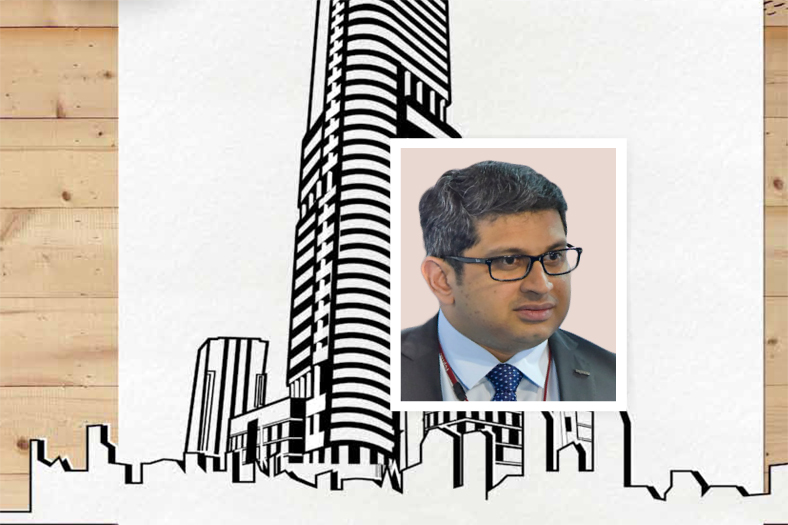Fundamentals of Facility Management

Rushabh Vora, Co-Founder and Director, SILA elucidates the benefits of choosing a professional to manage an asset. He also talks about various criteria for choosing the right PMC or a FM.
Facility management (FM) companies play a key role in enhancing and sustaining the value of real estate asset. The term Facility or Property Management broadly encompasses the maintenance related activities of all classes of real estate projects – commercial, residential, infrastructure, retail, hospitality, and industrial.
The services are broken up into a few broad categories:
Soft Services: Housekeeping, horticulture, pantry/office services, pest control, club house management, guest relations, help desk.
Hard Services: Mechanical, electrical, plumbing, energy management and consulting, helpdesk, information technology and support.
Security & Safety: Visitor management, fire safety and systems, emergency/quick response, guarding, access control systems.
Accounting & Billing: Financial controls, billing, forecasting, lease and occupant coordination.
Why choose a professional to manage your asset?• Maximise the long-term value of the asset: FM companies introduce best-in-class process and technology that allow asset owners to maximise the value and ensure longevity of all the systems installed within the building or project. Maintenance service levels are enhanced because of the processes and systems that most FM companies bring to the table.
• Cost controls: FM companies are generally able to implement the cost effective, tailored solutions for clients. Existing relationships with Original Equipment Manufacturers (OEMs) allow them to procure spares and maintain assets at lower costs. Often, FM companies explore the option of procuring spares and entering into annual service contracts with reputed third-party vendors, which helps reduce costs even further.
• Allows clients focus on core competencies: When professional FM companies operate real assets, clients can focus on their core competencies and leave the day-to-day functioning of their premises to professionals – a task that is what is often thought of as an added burden.
• Safety measures: A professional has the experience of an overall oversight for facilities issues, enabling them to see patterns, track changes and identify risks that may have a future negative impact. Their knowledge enables them to take the action required to ensure the safety of the employees or residents as well as minimise the risks.
• Security measures: Some reputed companies will conduct back ground verification checks for all the staff that is employed at the premises. A detailed court record verification check along with physical ID and address proof verifications for all the employees will be a mandatory part of the processes.
• Technology: A few established companies use proprietary software and technology that lead to efficiencies in operations, billing, club house management and performance management.
• Enhanced service levels and accountability: A professional company will typically institute processes and technology to measure service levels of each team (security, housekeeping, plumbing/electrical) working at the property, thereby improving efficiency and productivity.
• Dedicated management team: Most FMs and PMCs will appoint an on-site management team dedicated to service employees/residents. This team will be the point of contact for any organisation or building related requests and escalations that they have. The size of this team varies based on the size of the organisation or the complex and the number of amenities available for the same.
• Energy management and water conservation: Most companies will implement processes to reduce energy wastage by conduction of periodic energy and electrical safety audits.
Criteria for choosing the right Property Management Company (PMC) or a Facility Management (FM)?
• Operating model (in-house vs. outsourced): Established PMCs and FMs in India implement one of two operating models. One is a model where all services, e.g., Housekeeping, security, horticulture, engineering, AMC management are outsourced. The second model is one where all (or most) employees are on the payroll of the PMC which is highly recommended.
• Compliances: The FM or PMC that the companies and the gated communities hire is the contractor. Hence, it is important that they adhere to all statutory obligations and obtains the necessary licenses for the staff that it employs e.g. labour licenses, Provident Fund, ESI, welfare funds etc.
• Track record: The company’s prior experience in dealing with residential societies and associations and official spaces. Residential Property/Facility Management is very different from managing a corporate office. The number of owners, end clients, stakeholders in residential buildings is a lot more than in a corporate. For a residential complex, a PMC must be familiar with Corporate Housing Society (CHS), association or condominium norms. Accounting and member billing procedures are also very different in residential projects as compared to commercial projects. Both the set of practices need to be looked into respectively.
• Use of technology and quality of processes: It is important that the management company that one hires is up to date with the latest technology and processes available. This can help cut maintenance costs, improve security and improve operating efficiency.
• Review mechanisms: Companies must have stringent review mechanisms for the performance of their on-site teams and service vendors.
Authored by__
Rushabh Vora,
Co-Founder and Director, SILA
Cookie Consent
We use cookies to personalize your experience. By continuing to visit this website you agree to our Terms & Conditions, Privacy Policy and Cookie Policy.









